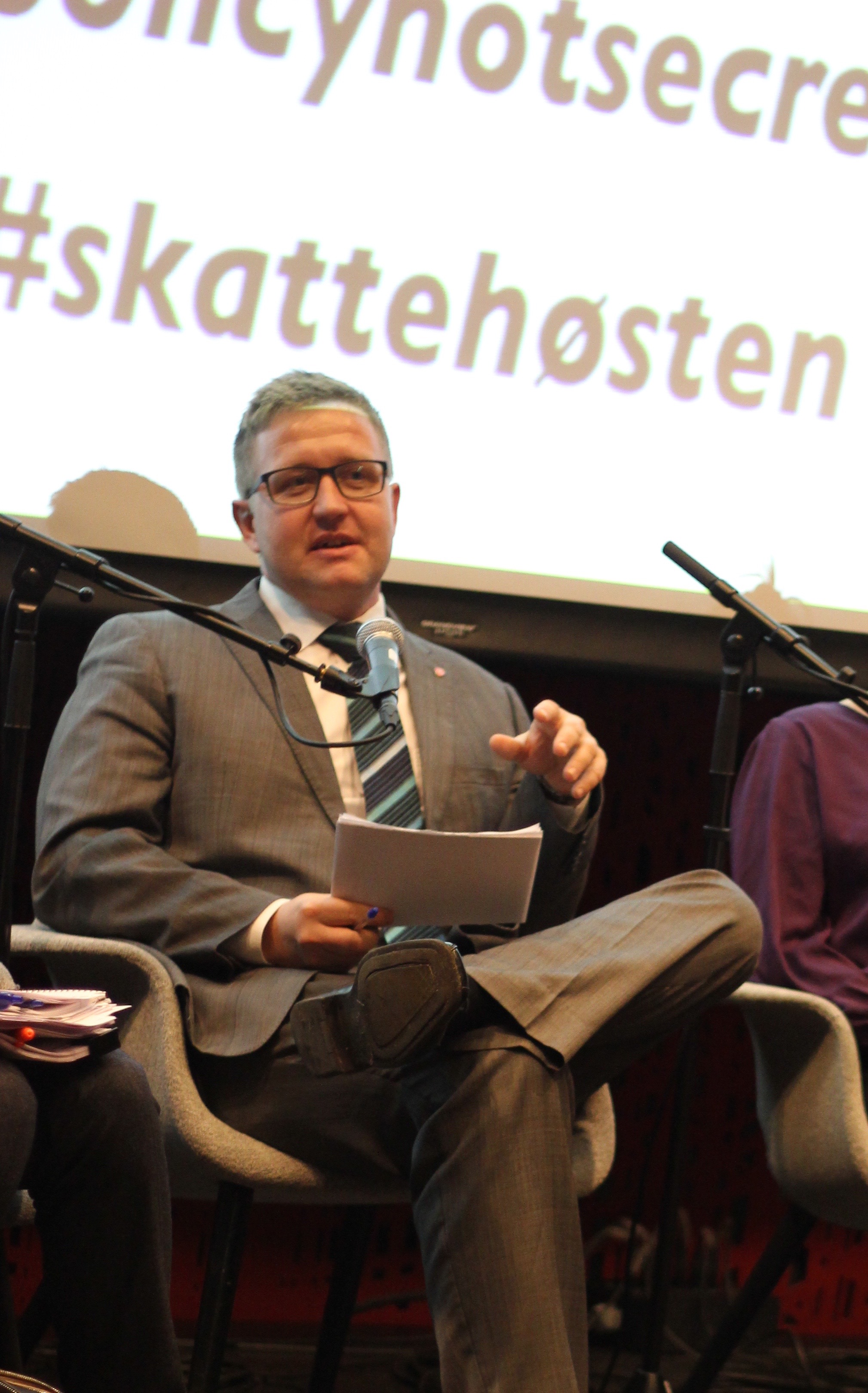
Truls Wickholm (Ap) has sent an interpellation about extended country-by-country reporting to the Minister of Finance. There will be a debate on the interpellation in The Norwegian Parliament the 5th of June.
In his question to the Minister of Finance, Wickholm asks if the government will implement the transparency requirements in an extended country-by-country reporting.
Friday 5th of June the Norwegian government has to give an answer in the Parliament. An interpellation is a more extensive form of question to the government or a minister, then a question during the Question Time. It generally deals with matters of greater scope and political importance. There is usually a debate held in the Parliament about the interpellation.
Transparency requirements
This is the question from Truls Wickholm to Minister of Finance, Siv Jensen (Frp):
Truls Wickholm (A): Developing and emerging economies have lost 6.6 trillion USD in illicit financial flows during the 2003-2012 period. Illicit financial flows have increased on an average rate of 9,4 percent per year, twice as fast as global GDP. According to the IMF, some countries loose up to 15 percent in tax revenue. International Bar Association argue that actions of jurisdictions which ”encourage or facilitate tax abuses, or that deliberately frustrate the efforts of other states to counter tax abuses, could constitute a violation of their international human rights obligations”. When companies pay too little tax, regular people must pay more. Norwegian companies, workers and investors are the losers. An extended country-by-country reporting will reveal undesirable tax planning by obliging companies to report revenues, expenses, taxes, production and investment for all countries, in the notes to the annual accounts.
Will the government fight this problem and implement the transparency requirements in an extended country-by-country reporting?
Debate about the interpellation
When the interpellation is processed in the Parliament, Truls Wickholm is given the right to speak first for maximum ten minutes to explain the content of the interpellation. If a member of the government declares that there will be no answer to the interpellation, the interpellation is finished. If the interpellation is answered, the members of the government who answer the interpellation are given ten minutes. The Prime Minister and other ministers whose ministries are affected by the interpellation may respond as well within the same time frame.
In the subsequent debate will first the interpellator, and then the members of the government have right to speak in up to three minutes. Then other representatives can use up to five minutes to speak. In the end the interpellator and members of government have a right to speak in up to three minutes.
Take a part in the advocacy work
An extended country-by-country reporting is a bill that PWYP Norway has developed, prepared and also presented to the European Commission. The law on country-by-country reporting was implemented in Norway January 1st 2014. This is a result of the EU directive, which is a minimum level. The law is the lowest common denominator for a transparency level which EU countries are able to agree on. EU’s reporting is again a result of the law introduced in USA. The aim is greater transparency of money flows in the extractive industries. But three critical elements are still missing and must be in place so that the law can work the way it was intended.
Read how close we are an extended country-by-country reporting
Do you want to contribute to influence politicians? Then you can take part in the debate on social media. Suggested tweet:
”Will you join the debate on the extended country by country reporting in the Parliament 5th of June? http://www.publishwhatyoupay.no/nb/node/16515”
Address the tweet to politicians so that they join the debate. Here are some relevant politicians:
@mariannemar @SiriMHoyre @Trinesg @HansOlavSyverse @snorrevalen @TrulsWickholm @VenstreTerje @vampus @Siv_Jensen_FrP
